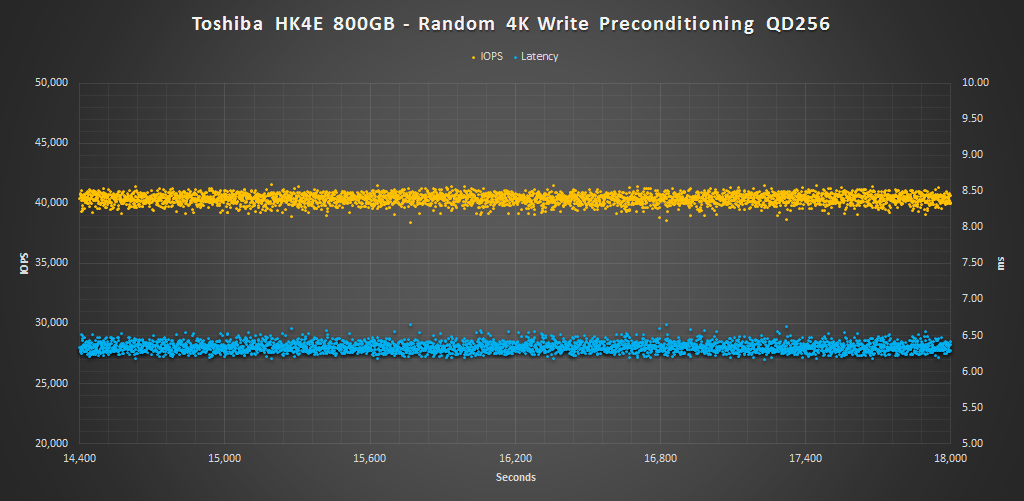4KB RANDOM READ/WRITE
In order to properly test random 4KB performance we first secure erase to get it in a clean state. Next, the drive is filled by sequentially writing to the RAW NAND capacity twice. We then precondition the drive with 4KB random writes at QD256 until the drive is in a steady state. Finally, we cycle through QD1-256 for 5 minutes each for writes and then reads. All this is scripted to run with no breaks in between. The last hour of preconditioning, the average IOPS, and average latency for each QD is graphed below.
Taking a look at our preconditioning data we can see that the average 4K write latency at QD256 is about 15ms with very minimal variation, which is great to see especially during exaggerated QD for this type of drive. The average IOPS is 17K, again, as a reflection of the latency, there is minimal variation. Overall, this is much better than the HK4R we reviewed before.
During 4K reads we can see that the HK4E is very close to the Samsung SM863, though right behind it across the board. From QD8-32 the M510DC is easily beat out by both the Toshiba HK4E and Samsung SM863. Up to QD16 the latency remains below 0.2ms and peaks at just under 0.35ms at QD32.
The Samsung and Micron 510DC both have a lead at QD1, but the 4K write results show the HK4E to be the best performing of the group by a large margin beyond that. It averaged 40K IOPS write from QD4 to 32. This result even exceeds the 30K IOPS rating from Toshiba. Latency was also very low remaining under 0.8ms up to QD32.
 The SSD Review The Worlds Dedicated SSD Education and Review Resource |
The SSD Review The Worlds Dedicated SSD Education and Review Resource | 

